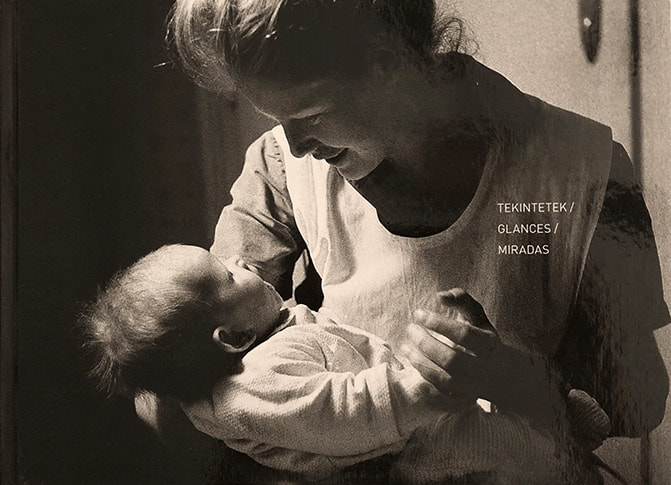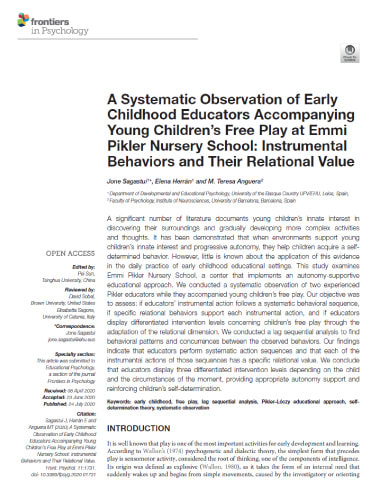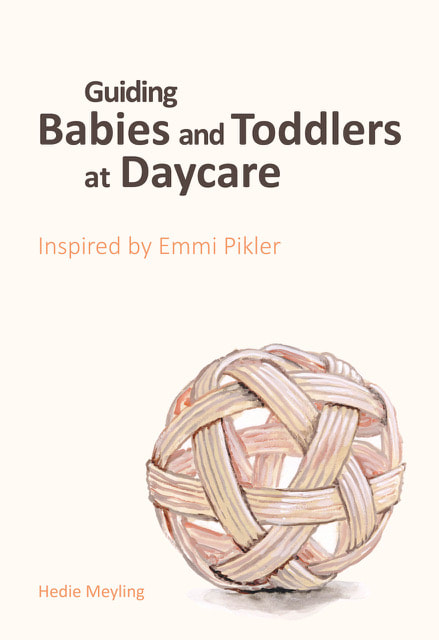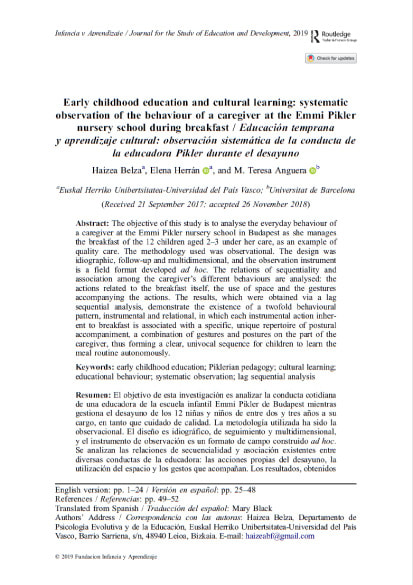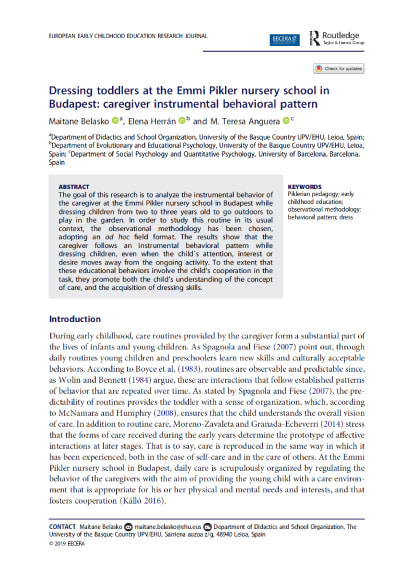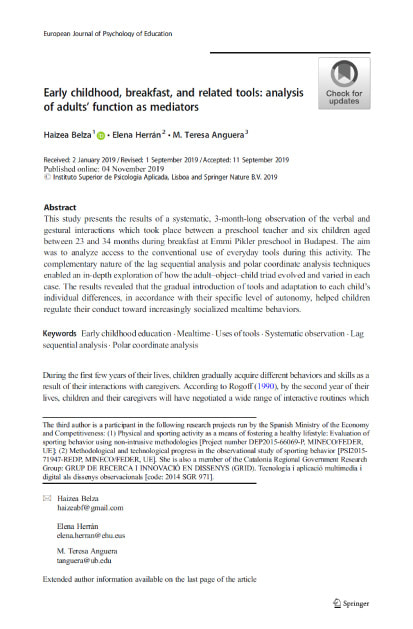Shopping / Books and Papers
from the official Pikler library...
To purchase - most items on in the 'official Pikler library' can be purchased directly from Hungary (click here). Some items can be ordered in other countries details for which are noted under each product - please click here to choose your closest stockist for ordering and shipping.
|
Bringing Up and Providing Care for Infants and Toddlers in an Institution
This book contains the following articles - 'Some infomation about the the history of Pikler Institute' and 'The importance of person-oriented adult-child relationships and its basic conditions' by Judit Falk, MD. 'The meaning of cooperation during care, Dressing on the diapering table, dressing table cushion', '"Own caregiver" - "Own child"', 'Feedings as one of the main scenes of the adult-child relationship' and 'From bottle feeding to independent eating' by Maria Vince, MD. 'From the hands of the caretaker' and 'The child as an active participant in his own development' by Anna Tardos. 'Give me time: gross motor development under the conditions at Loczy' by Emmi Pikler, MD. 'Bringing up and providing care for infants and toddlers in an institution' Editor-in-chief Eva Kallo Published by Pikler-Lóczy Association for Young Children Budapest (2007) Available from the Association Pikler-Lóczy Hungary |
|
LOCZY An Unusual Approach to Mothering
By Dr Myriam David and Genevieve Appell Published by Pikler-Lóczy Association for Young Children Budapest (2001) ISBN 978-9630053914 Available from the Association Pikler-Lóczy Hungary |
|
The Origins of Free Play
By Éva Kálló and Györgyi Balog Published by Pikler-Lóczy Association for Young Children Budapest (2005) ISBN-13 9789638667120 Available from the Association Pikler-Lóczy Hungary Also available through Pikler UK Association |
|
Bathing the Baby - The Art of Care
By Judit Falk and Maria Vincze "If the child can trust to be able to influence the events happening to him, if he can feel that he is not a passive receiver, but an active participant of his care, then his sense of competence will grow stronger. If he is never dealt with as if he was an object - be it either precious or worthless - but as a human being who feels, observes, remembers and understands or will understand, if the words and gestures are not only nice but they also consider the sensitivity of the child continuously, then a real dialogue during care will form between the two partners starting at the youngest age." - Judit Falk, M. D. Published by Pikler-Lóczy Association for Young Children Budapest (2006) Available from the Association Pikler-Lóczy Hungary |
|
Bulletin - Story of Emmi Pikler 1902-1984
Edited by Mary Alice Roche Published by Sensory Awareness Foundation, USA (1994) Available from the Association Pikler-Lóczy Hungary |
|
Why Should We Lay the infant in the Prone Position?
(Also known as Why We Don't' Put Babies in the Prone Position) By Dr. Judit Falk Publication: Child and Youth Medical Journal Published by Le Promenade Bt Budapest and Pikler-Lóczy Association for Young Children Budapest (2011) Available from the Association Pikler-Lóczy Hungary |
|
Data on the Social Adjustment of Children Reared in our Institute
By Judit Falk and Emmi Pikler Emmi Pikler International Public Foundation Available from the Association Pikler-Lóczy Hungary |
|
Let the Infant Play by Himself As Well
By Anna Tardos Publication: The First Years. New Zealand Journal of Infant and Toddler Education Volume 14, Issue 1, 2012 pp 4-9 Available from the Association Pikler-Lóczy Hungary |
|
Introducing the Piklerian Development Approach: History and Principles
By Anna Tardos (pp3-4) Researching the Infant By Anna Tardos (pp9-14) The Signal, Newsletter of the World Association for Infant Mental Health. Vol.18. No . 3-4 / July-December 2010 Available from the Association Pikler-Lóczy Hungary |
|
Special Education within Loczy
An Interesting Challenge By Dr Sjoukje Borbely Published by the Hungarian Pikler-Lóczy Association and Emmi Pikler Stichting Nederland. ISBN 978-90-807225-3-8 Available from the Association Pikler-Lóczy Hungary |
|
In Loving Hands
By Elsa Chahin and Anna Tardos In collaboration with World Forum Foundation Published by XLIBRIS, April 2017. ISBN-13: 978-1543414325 Available from the Association Pikler-Lóczy Hungary Available on Amazon |
|
Tekintetek / Glances / Miradas
Photos by Marian Reismann In April 2018 Artphoto Galeria in Budapest hung the work of photographer Marian Reisman on the walls - photographs taken of life at Loczy. The exhibition was part of the Pikler International Symposium, and Budapests Photo Festival and Art Week. These photographs have been compiled into a book, (English language) "Glances". Ed. Eszter Mózes, Tomas Opitz, Bea Puskás Published by Lóczy Foundation for Children 2018. Available from the Association Pikler-Lóczy Hungary |
|
Moving With Pleasure from the Beginning: The Importance of Observation in Early Childhood
By Dr. Agnes Szanto-Feder "This book will allow the reader to see infants and young children through a lens of competence. Because of this singular approach, youngsters are not coerced or forced to be - or to become - anyone other than who they truly are. This, in a nutshell, is the core Piklerian philosophy, something that is so very simple yet also undeniably deep. Ágnes's acute observational skills guide the reader to understand at a much greater level, what freedom and autonomy actually means for an infant." - Elsa Chahin President & CEO Pikler/Lóczy USA Published by XLIBRIS, May 2020. ISBN-13: 978-1796093759 Available from the Xlibris |
|
A Systematic Observation of Early Childhood Educators Accompanying Young Children’s Free Play at Emmi Pikler Nursery School: Instrumental Behaviors and Their Relational Value
By Jone Sagastui, Elena Herrán and M. Teresa Anguera Click here to read **FREE** "This study examines Emmi Pikler Nursery School, a center that implements an autonomy-supportive educational approach. We conducted a systematic observation of two experienced Pikler educators while they accompanied young children’s free play. Our objective was to assess: if educators’ instrumental action follows a systematic behavioral sequence, if specific relational behaviors support each instrumental action, and if educators display differentiated intervention levels concerning children’s free play through the adaptation of the relational dimension." |
|
NEW Guiding Babies and Toddlers at Daycare: Inspired by Emmi Pikler
By Hedie Meyling "The narrative structure and the many practical examples in this book bring to life the pedagogy that Emmi Pikler and her staff developed over many years. I am confident that not just experts in the field, but many parents, too, will read it with interest and pleasure." Anna Tardos Published independently Feb 2024. ISBN 9798879597738 Available from the Amazon anywhere in the world, as a book or Kindle ebook |
|
On-line Downloads -
Being with Babies By Anna Tardos "Many times it happens that in the important moments of being together we do not really pay attention to them, because we are preoccupied with the tasks relating to them: putting on their shirts, wiping their bottoms, adjusting their diapers. We touch them, move them around, and sometimes fail to notice the expectation in their gaze as they look at us. We don’t think about how happy they would be ‘to help’..." Click here to download |
|
Early childhood education and cultural learning: systematic observation of the behaviour of a caregiver at the Emmi Pikler nursery school during breakfast
By Haizea Belza, Elena Herrán & M. Teresa Anguera Click here to download Abstract: The objective of this study is to analyse the everyday behaviour of a caregiver at the Emmi Pikler nursery school in Budapest as she manages the breakfast of the 12 children aged 2–3 under her care, as an example of quality care. The methodology used was observational. The design was idiographic, follow-up and multidimensional, and the observation instrument is a field format developed ad hoc. The relations of sequentiality and association among the caregiver’s different behaviours are analysed: the actions related to the breakfast itself, the use of space and the gestures accompanying the actions. The results, which were obtained via a lag sequential analysis, demonstrate the existence of a twofold behavioural pattern, instrumental and relational, in which each instrumental action inherent to breakfast is associated with a specific, unique repertoire of postural accompaniment, a combination of gestures and postures on the part of the caregiver, thus forming a clear, univocal sequence for children to learn the meal routine autonomously. |
|
Dressing toddlers at the Emmi Pikler nursery school in Budapest: caregiver instrumental behavioral pattern
By Maitane Belasko, Elena Herrán & M. Teresa Anguera Click here to download Abstract: The goal of this research is to analyze the instrumental behavior of the caregiver at the Emmi Pikler nursery school in Budapest while dressing children from two to three years old to go outdoors to play in the garden. In order to study this routine in its usual context, the observational methodology has been chosen, adopting an ad hoc field format. The results show that the caregiver follows an instrumental behavioral pattern while dressing children, even when the child`s attention, interest or desire moves away from the ongoing activity. To the extent that these educational behaviors involve the child’s cooperation in the task, they promote both the child’s understanding of the concept of care, and the acquisition of dressing skills. |
|
Early childhood, breakfast, and related tools: analysis of adults’ function as mediators
By Haizea Belza, Elena Herrán & M. Teresa Anguera Click here to download Abstract: This study presents the results of a systematic, 3-month-long observation of the verbal and gestural interactions which took place between a preschool teacher and six children aged between 23 and 34 months during breakfast at Emmi Pikler preschool in Budapest. The aim was to analyze access to the conventional use of everyday tools during this activity. The complementary nature of the lag sequential analysis and polar coordinate analysis techniques enabled an in-depth exploration of how the adult–object–child triad evolved and varied in each case. The results revealed that the gradual introduction of tools and adaptation to each child’s individual differences, in accordance with their specific level of autonomy, helped children regulate their conduct toward increasingly socialized mealtime behaviors. |
from those inspired by Pikler...
|
Dear Parent: Caring for Infants With Respect (2nd Edition) By Magda Gerber Published by Resources for Infant Educators (RIE). ISBN 978-1892560063 Available from Pikler Shop |
|
Being With Babies
by Beverly Kovach and Denise Da Ros Vosales Publishered by Gryphon House (2008). ISBN 978-0876590621 |
|
Being with Infants and Toddlers: A Curriculum that works for Caregivers
by Beverly Kovach and Susan Patrick, edited by Laura Briley Published by LBK Publishing. ISBN 9780615635163 |
|
Dance with me in the Heart: The Adult's Guild to Great Infant-Parent Relationships
by Pennie Brownlee Published by Good Egg Books (2016). ISBN: 0908609582 |
|
Authentic Relationships in Group Care for Infants and Toddlers - Resources for Infant Educarers (RIE) Principles into Practice
by Stephanie Petrie and Sue Owen Published by Jessica Kingsley Publishers (2005). ISBN 978-1843101178 |
|
R.E.S.P.E.C.T A Practitioner's Guide to Calm & Nurturing Infant Care & Education
by Toni Christie Published by Childspace Early Childhood Institute (2011). ISBN 9780473185541 |
|
Beginning Well: Empathy from the Very Beginning
by Pia Dögl, Elke Maria Rischke, Ute Strub Published by Waldorf Early Childhood Association of North America, 2018 ISBN 978-1936849451 Available on Amazon |
|
On-line Downloads -
The Pikler Institute: A Unique Approach to Caring for Children by Janet Gonzalez-Mena, Elsa Chahin, and Laura Briley |













